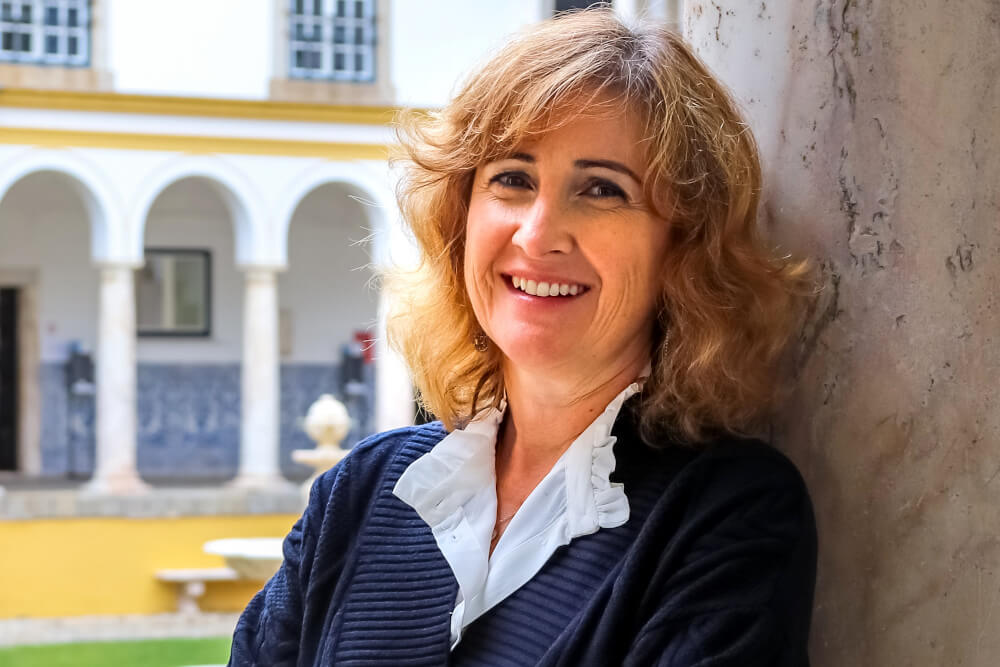Elisabete Pereira

History of Science, Technology, and Environment
Contact:
ejsp@uevora.pt
Biography
Elisabete J. Santos Pereira holds a PhD in History and Philosophy of Science with a specialisation in Museology (2017).
Author of the book “Colecionismo Arqueológico e Redes de Conhecimento: Actores Colecções e Objectos 1850-1930” published in 2018 (Colecção Estudos de Museus), she was selected, in 2023, by the German Federal Foreign Office to participate in the international programme TheMuseumsLab 2023, developed in Berlin and Nairobi (Kenya). The European Association of History Educators (EuroClio) and the Evens Foundation distinguished her inclusive pedagogical strategy for secondary school students: “Using object biographies to reveal how our pasts are interconnected” (project ‘Sharing European Histories‘). She has published articles and chapters in national and international journals and publishers (Taylor & Francis/Routledge, UK; Hermann editions, France; Service des Musées de France, The Royal Society, UK; Techniche Universität Dresden Press, Germany; Fundação Oswaldo Cruz, Brazil).
She was a co-coordinator of the Dictionary Quem é Quem na Museologia Portuguesa [Who’s Who in Portuguese Museology] and is the principal researcher of the project “TRANSMAT — Transnational materialities (1850-1930): reconstituting collections and connecting histories.” (PTDC / FER-HFC / 2793/2020). She was team member of the international projects “Museum Networks: People, Itineraries And Collections” (Alexander von Humboldt-Stiftung, Germany), “Desafíos educativos y científicos de la Segunda República española” [Educational and Scientific Challenges of the Second Spanish Republic] (Ministry of Science, Innovation, and Universities of Spain), and the European Researcher’s Night 2023 (Marie Sklodowska-Curie Actions).
Research fields
- History of science
- History of collections and scientific collectionism
- Colonial ethnographic collections
- Biographies of objects
- Museology
Selected publications
- Pereira, Elisabete J. Santos, “The antique collection of Teixeira de Aragão (1823-1903): Lisbon and Paris,” in La Belle Époque des collectionneurs d’antiques en Europe (1850-1914), directed by Dietrich Boschung, Cécile Colonna, Néguine Mathieux and François Queyrel, 135-143. Paris: Hermann / Louvre Editions, 2022. [link]
- Pereira, Elisabete, “Using object biographies to reveal how our pasts are interconnected,” in Sharing European Histories, edited by Katria Tomko, Steven Stegers, Marjolein Delvou and Hanna Zielinska, 14-29. The Hague: Euroclio / Evens Foundation, 2021. [link]🔓
- Pereira, Elisabete J. Santos, Maria Margaret Lopes & Maria de Fátima Nunes. “‘Collective wisdom’ at the National Archaeological Museum in Portugal,” Museum History Journal 12 (2019): 171-191. [link]
- Pereira, Elisabete J. Santos. Colecionismo Arqueológico e Redes de Conhecimento: Atores, Coleções e Objetos (1850-1930). Casal de Cambra: Caleidoscópio, 2018. [link]
Main projects
- Coordinator of the project “TRANSMAT — Transnational materialities (1850-1930): reconstituting collections and connecting histories” — Hosted by the IHC — University of Évora and funded by the Foundation for Science and Tecnology (PTDC /FER-HFC /2793/2020). [link]
- Researcher selected for TheMuseumsLab 2023 project – Funded by Deutscher Akademischer Austauschdienst (German Academic Exchange Service); developed in Berlin (Germany) and Nairobi (Kenya); also included funding for a residency at the Rautenstrauch-Joest-Museum in Cologne (Germany).
- Collaborator in the project “Desafíos educativos y científicos de la Segunda República Española: internacionalización, popularización, innovación en universidades e institutos” [Educational challenges of the Spanish Second Republic] — Coordinated by Leoncio López-Ocón (Instituto de Historia — CSIC) and Álvaro Ribagorda (Universidad Carlos III de Madrid) and funded by the Spanish National Research Agency (PGC2018-097391-B-I00). [link]
- Researcher in the project “Sharing European Histories” — Hosted by EuroClio — European Association of History Educators and funded by Evens Foundation. [link]
- Member of the project “Museums Networks: People, Itineraries and Collections (1770-1920)” — Coordinated by Irina Podgorny (CONICET – Museo de La Plata, Universidad Nacional de La Plata) and funded bu the Humboldt Foundation (Germany). 2016- [link]
Pesquisa
Agenda
julho, 2025
Tipologia do Evento:
Todos
Todos
Colloquium
Conference
Conference
Congress
Course
Cycle
Debate
Exhibition
Launch
Lecture
Meeting
Movie session
Open calls
Opening
Other
Presentation
Round table
Seminar
Showcase
Symposium
Tour
Workshop
- Event Name
seg
ter
qua
qui
sex
sab
dom
-
1
2
3
4
5
6
7
8
9
10
11
12
13
14
15
16
17
18
19
20
21
22
23
24
25
26
27
28
29
30
31
Não Existem Eventos
Notícias
Ricardo Noronha leads team to study “petromodernity”
Jul 7, 2025
The PETROSINES project was one of the six History projects that received funding from the FCT
Statement about the demolitions in the Bairro de Santa Filomena
Jul 3, 2025
Statement from the team of the project FILMASPORA
VINCULUM recognised with European Union Prize for Citizen Science
Jun 20, 2025
VINCULUM’s application received an Honourable Mention in the European Union Prize for Citizen Science 2025
CONTACTS
WORKING HOURS



